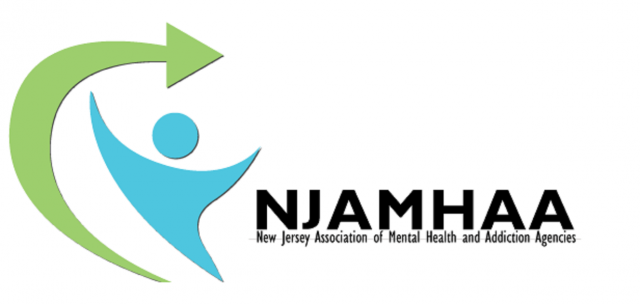March 1, 2021
March Is Developmental Disabilities Awareness Month
Isolation has been a common issue for individuals with
disabilities since long before the COVID-19 pandemic, which has
worsened the sense of seclusion for many in this vulnerable
population. While connections with others, either in person or
virtually, are beneficial - and actually essential - for
everyone, the pandemic has made it more difficult to socialize,
especially for individuals with disabilities. Furthermore,
isolation could result in the develop-ment or exacerbation of
mental illness for anyone, and individuals with disabilities
could be at higher risk of developing not only mental illness,
but also coronavirus and other physical illnesses. These
important health issues are being addressed by the New Jersey
Legislative Disability Caucus.
"While everybody has experienced the feeling of loneliness and
isolation during the pandemic, people with developmental
disabilities often were removed from communities long before
COVID. The importance of a support network of like-minded
individuals who have similar lived experience is something that
should not be overlooked. It is also important to consider the
limitations that people with developmental disabilities have to
accessing treatment that they need during the COVID-19 pandemic.
Service providers who work with the developmental disabilities
community have done incredible work with providing medical care
for this population and with connecting them with their
communities," said Debra L. Wentz, PhD, President and CEO of the
New Jersey Association of Mental Health and Addiction Agencies
(NJAMHAA).
The New Jersey Legislative Disability Caucus was established in
the beginning of 2021 through the leadership of the New Jersey
Council on Developmental Disabilities. It is a bipartisan forum
within the New Jersey Legislature for lawmakers and their staff
to consider the impact on the disability community when creating
public policies. The Caucus also aims to increase awareness and
understand the disabilities service system and issues facing
people with disabilities and their families. On January 26th, the
Caucus held a meeting to discuss the impact of COVID-19 on people
with disabilities and how the COVID-19 pandemic is taking a
disproportionate toll on this community. This is important as not
only does COVID-19 pose a threat to a person with developmental
disabilities' health, but impacts their socialization and their
relationship with their community.
The Centers for Disease Control and Prevention
(CDC) says that adults with disabilities are three times more
likely than adults without disabilities to have diabetes, heart
disease or a stroke. The pandemic could also be particularly
isolating for people with developmental disabilities. For
example, many group homes have limited the number of people
visiting group homes at the same time to reduce the amount of
exposure that vulnerable residents would have. The closure of day
programs also can reduce the number of social interactions that
individuals with developmental disabilities would have, compared
to before the pandemic. While programs have moved to a virtual
space, there are some people who do not have access to the
Internet or other technologies that would allow them to
participate in day programs or connect with their loved ones.
Even before the COVID-19 pandemic, many people with developmental
disabilities felt isolated. Some individuals could have been
prevented from interacting with their communities because of
being homebound, having limited transportation options and
financial constraints and feeling unwell due to symptoms
associated with their disabilities. Additionally, people with
develop-mental disabilities could feel that they stood out in
social groups because of their disabilities, especially if they
are physical disabilities. People who have "invisible
disabilities", or disabilities that tend to be primarily
neurological, may also feel removed from social groups because
the individuals in the groups may have difficulty understanding
their disabilities or may doubt the disabilities are real. This
can impact the mental health of individuals who have
developmental disabilities. According to the CDC, when surveyed in 2018, approximately
17.4 million adults with disabilities stated that they
experienced 14 or more mentally unhealthy days within the past 30
days. The CDC added that mental distress this frequent is often
associated with an increased use of health services, mental
illness and limitations that can be experienced in daily
life.
Behavioral health providers play a critical role in addressing
these issues that impact individuals' quality of life. They not
only deliver care, but also empower individuals with disabilities
to function in and contribute to their communities, as well as
engage in social activities. NJAMHAA members that provide
services to individuals with developmental disabilities include
Alternatives, Inc.; Archway Programs; Catholic Charities, Diocese
of Metuchen; Declarations, Inc.; East Orange General Hospital;
Easterseals New Jersey; Inroads to Opportunities; Jewish Family
Service (JFS) of Somerset, Hunterdon and Warren Counties; JFS
Clinton; Legacy Treatment Services; North Jersey Friendship
House, Inc.; Oaks Integrated Care; Pillar Care Continuum; SERV
Behavioral Health System, Inc.; Trinitas Regional Medical Center;
Vantage Health System; Wiley Christian Adult Day Services; and
Youth Consultation Service.
March is Developmental Disabilities Awareness Month. Each year,
the National Association of Councils on Developmental
Disabilities (NACDD) partners with disability service
organizations, advocates, developmental disability councils and
other organizations to create social media campaigns that
highlight the many ways in which people with and without
disabilities come together to form strong, diverse communities.
The goal of the campaign is to raise awareness about the
inclusion of people with developmental disabilities in all areas
of community life, as well as awareness of the barriers that
people with disabilities still sometimes face in connecting with
the communities in which they live. To learn more about
Developmental Disabilities Awareness Month, click here to visit
the NACDD website. To participate in the social media campaign,
use "#DDAwareness2021".



